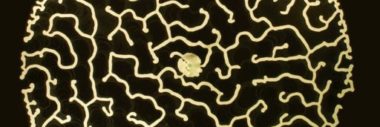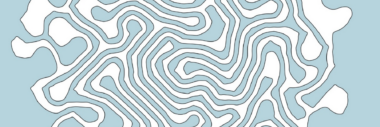PoreLab Lecture Series
Do you wish to receive the invitations to the PoreLab lectures? Contact Marie-Laure Olivier here: Marie-Laure.Olivier@ntnu.no

Do you wish to receive the invitations to the PoreLab lectures? Contact Marie-Laure Olivier here: Marie-Laure.Olivier@ntnu.no


The idea is for the juniors to present a recent paper with a short preparation time, Papers are then peer-reviewed by the group.
When:14 October at 13:00 Where: online (see below) Title : Mixing control on fluid-fluid and fluid-solid chemical reactions in multiphase systems Speaker: Dr. Joaquin Jimenez-Martinez Affiliation: Department Water Resources and Drinking Water, Eawag, 8600 Dubendorf, Switzerland Department of Civil, Environmental and Geomatic Engineering, ETH Zurich, 8093 Zurich, Switzerland Abstract: Porous and fractured media
Prof. Muhammad Sahimi has been awarded the Kimberly-Clark Distinguished Lectureship Award by InterPore Foundation for 2021. As such, he will share a topic relevant to the industrial porous media community through a series of lectures at various organizations. In addition to in-person lectures, Prof. Sahimi will also be offering the option of online and hybrid lectures. You
Vilde Bråten, PhD candidate at PoreLab and at the department of Materials science and engineering at NTNU, was placed second in the national finale in Researchers Grand Prix Congratulations! She hold a presentation on nanothermodynamics. The contest consisted of one regional finale in Trondheim, Norway, and one National finale. In both finals she presented two four
The Porous Media Tea Time Talks (PMTTT) team is happy to invite you to the next Porous Media Tea Time Talks (#PorousMediaTTT) session on 06.10.2020 at 10:30 am CEST, which will be streamed live on our YouTube Channel. You can also watch the recording of the presentation afterwards if you like. Feel free to post your questions using the
The call for InterPore award nominations is now open and InterPore is looking for nominators of worthy candidates. Deadline for nominations is November 1, 2020.
Title : Flow in porous materials: a tale of X-rays, minimal surfaces and wettability Speaker: Professor Martin Blunt Affiliation: Department of Earth Science & Engineering at Imperial College London When: 7 October from 12 to 13 Where: online (see below) Abstract: I will provide an overview of the current revolution in our understanding of flow,
Read an article in Titan about PoreLab exhibition “The Art of Porous Media” here: Titan article here >>
Read the last publication from Carl Fredrik Berg, Per Arne Slotte, and Hamid Hosseinzade Khanamiri on “Geometrically derived efficiency of slow immiscible displacement in porous media” published on September 22nd, 2020 here: Publication here >>
Title : The LBPM software package for simulating multiphase flow on digital images of porous rocks Speaker: Dr. Thomas Ramstad Affiliation: Principal researcher at Equinor When: 30 September 2020 from 14 to 15:00 Where: Join Zoom Meeting https://NTNU.zoom.us/j/96373107232?pwd=ekZFKzZ2am9UYmpxMEx6Y2JUWEZrdz09 Meeting ID: 963 7310 7232 Passcode: 549412 Join by SIP 96373107232@zoomcrc.com Join by H.323 162.255.37.11 (US West)
The last article published by Professor Eirik Flekkøy on ‘Oumuamua, the interstellar guest in our solar system, is available here in Aftenposten. The article is in Norwegian. Article here (in Norwegian) >>
Welcome to the opening of our virtual gallery exhibition on Monday September 21st at 1PM! Beauty can be found in the most ordinary of things. Some of the greatest scientists that ever lived endorse this viewpoint. Richard Feynman, in one of his many strokes of pure genius boldly spoke about the several layers of
We are happy to invite you to our next Porous Media Tea Time Talks (#PorousMediaTTT) session at 22.09.2020 at 15.00 pm CEST/local time on: https://www.youtube.com/channel/UCuK0ogQKdSxq6pW-vljLN1Q. This time we will be going from the modeling of filtration processes to the engineering challenges of a living porous medium! Remember that you can post questions anytime using
Title : Heterogeneous Combustion in Porous Media as Ultra-low Emission Combustion Concept Speaker: Prof. Matthias Ihme Affiliation: Center for Turbulence, Research Department of Mechanical Engineering, Stanford University When: 23 September from 15 to 16, online Abstract: Current combustion technologies for aviation gas-turbines, stationary power generation, and internal combustion engines are relatively mature, and only incremental
Title : Parametric optimization and high-resolution fabrication of freeform Gas Diffusion Layers Speaker: : Jan Torgersen, Robert Bock Affiliation: Department of Mechanical and Industrial Engineering, NTNU University When: 21 September from 13 to 14 Abstract: The gas diffusion layer (GDL) is a multifunctional part of a fuel cell governing reactant and product transport in opposing
Caroline Einen started her PhD on August 10th, 2020 at PoreLab NTNU. Caroline holds a Master of Science in nanotechnology with a specialization in Bionanotechnology from NTNU. Her project is part of the project “Ultrasound-mediated transport of nanoparticles in tissue: A predictive model” financed by the Research Council of Norway. This project was established by